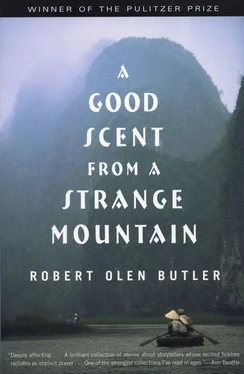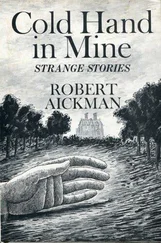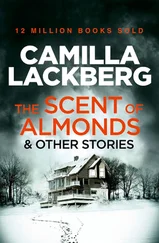At this point my son was squirming a little bit and his eyes were shifting away into the yard and I knew that my Cricketman trick had run its course. I fought back the urge to challenge his set of interests. Why should the stiff and foolish fights of his cartoon characters absorb him and the real clash — real life and death — that went on in the natural world bore him? But I realized that I hadn’t cut to the chase yet, as they say on the TV. “They fight to the death,” I said with as much gravity as I could put into my voice, like I was James Earl Jones.
The announcement won me a glance and a brief lift of his eyebrows. This gave me a little scrabble of panic, because I still hadn’t told him about the two types of crickets and I suddenly knew that was a real important part for me. I tried not to despair at his understanding and I put my hands on his shoulders and turned him around to face me. “Listen,” I said. “You need to understand this if you are to have fighting crickets. There are two types, and all of us had some of each. One type we called the charcoal crickets. These were very large and strong, but they were slow and they could become confused. The other type was small and’ brown and we called them fire crickets. They weren’t as strong, but they were very smart and quick.”
“So who would win?” my son said.
“Sometimes one and sometimes the other. The fights were very long and full of hard struggle. We’d have a little tunnel made of paper and we’d slip a sliver of wood under the cowling of our cricket’s head to make him mad and we’d twirl him by his antenna, and then we’d each put our cricket into the tunnel at opposite ends. Inside, they’d approach each other and begin to fight and then we’d lift the paper tunnel and watch.”
“Sounds neat,” my son said, though his enthusiasm was at best moderate, and I knew I had to act quickly.
So we got a shoe box and we started looking for crickets. It’s better at night, but I knew for sure his interest wouldn’t last that long. Our house is up on blocks because of the high water table in town and we crawled along the edge, pulling back the bigger tufts of grass and turning over rocks. It was one of the rocks that gave us our first crickets, and my son saw them and cried in my ear, “There, there,” but he waited for me to grab them. I cupped first one and then the other and dropped them into the shoe box and I felt a vague disappointment, not so much because it was clear that my boy did not want to touch the insects, but that they were both the big black ones, the charcoal crickets. We crawled on and we found another one in the grass and another sitting in the muddy shadow of the house behind the hose faucet and then we caught two more under an azalea bush.
“Isn’t that enough?” my son demanded. “How many do we need?”
I sat with my back against the house and put the shoe box in my lap and my boy sat beside me, his head stretching this way so he could look into the box. There was no more vagueness to my feeling. I was actually weak with disappointment because all six of these were charcoal crickets, big and inert and just looking around like they didn’t even know anything was wrong.
“Oh, no,” my son said with real force, and for a second I thought he had read my mind and shared my feeling, but I looked at him and he was pointing at the toes of his white sneakers. “My Reeboks are ruined!” he cried, and on the toe of each sneaker was a smudge of grass.
I glanced back into the box and the crickets had not moved and I looked at my son and he was still staring at his sneakers. “Listen,” I said, “this was a big mistake. You can go on and do something else.”
He jumped up at once. “Do you think Mom can clean these?” he said.
“Sure,” I said. “Sure.”
He was gone at once and the side door slammed and I put the box on the grass. But I didn’t go in. I got back on my hands and knees and I circled the entire house and then I turned over every stone in the yard and dug around all the trees. I found probably two dozen more crickets, but they were all the same. In Louisiana there are rice paddies and some of the bayous look like the Delta, but many of the birds are different, and why shouldn’t the insects be different, too? This is another country, after all. It was just funny about the fire crickets. All of us kids rooted for them, even if we were fighting with one of our own charcoal crickets. A fire cricket was a very precious and admirable thing.
The next morning my son stood before me as I finished my breakfast and once he had my attention, he looked down at his feet, drawing my eyes down as well. “See?” he said. “Mom got them clean.”
Then he was out the door and I called after him, “See you later, Bill.”
I look through the letters my father sent to me in Saigon and I find this: “Dear Fran. How are you? I wish you and your mother were here with me. The weather here is pretty cold this time of year. I bet you would like the cold weather.” At the time, I wondered how he would know such a thing. Cold weather sounded very bad. It was freezing, he said, so I touched the tip of my finger to a piece of ice and I held it there for as long as I could. It hurt very bad and that was after only about a minute. I thought, How could you spend hours and days in weather like that?
It makes no difference that I had misunderstood the cold weather. By the time he finally got me and my mother out of Vietnam, he had moved to a place where it almost never got very cold. The point is that in his letters to me he often said this and that about the weather. It is cold today. It is hot today. Today there are clouds in the sky. Today there are no clouds. What did that have to do with me?
He said “Dear Fran” because my name is Fran. That’s short for Francine and the sound of Fran is something like a Vietnamese name, but it isn’t, really. So I told my friends in Saigon that my name was Tran, which was short for Hon Tran, which means “a kiss on the forehead.” My American father lived in America but my Vietnamese mother and me lived in Saigon, so I was still a Saigon girl. My mother called me Francine, too. She was happy for me to have this name. She said it was not just American, it was also French. But I wanted a name for Saigon and Trán was it.
I was a child of dust. When the American fathers all went home, including my father, and the communists took over, that’s what we were called, those of us who had faces like those drawings you see in some of the bookstalls on Nguy  n Hu
n Hu  Street. You look once and you see a beautiful woman sitting at her mirror, but then you look again and you see the skull of a dead person, no skin on the face, just the wide eyes of the skull and the bared teeth. We were like that, the children of dust in Saigon. At one look we were Vietnamese and at another look we were American and after that you couldn’t get your eyes to stay still when they turned to us, they kept seeing first one thing and then another.
Street. You look once and you see a beautiful woman sitting at her mirror, but then you look again and you see the skull of a dead person, no skin on the face, just the wide eyes of the skull and the bared teeth. We were like that, the children of dust in Saigon. At one look we were Vietnamese and at another look we were American and after that you couldn’t get your eyes to stay still when they turned to us, they kept seeing first one thing and then another.
Last night I found a package of letters in a footlocker that belongs to my father. It is in the storage shack at the back of our house here in America. I am living now in Lake Charles, Louisiana, and I found this package of letters outside — many packages, hundreds of letters — and I opened one, and these are all copies he kept of letters he sent trying to get us out of Vietnam. I look through these letters my father wrote and I find this: “What is this crap that you’re trying to give me now? It has been nine years, seven months, and fifteen days since I last saw my daughter, my own flesh-and-blood daughter.”
Читать дальше

 n Hu
n Hu  Street. You look once and you see a beautiful woman sitting at her mirror, but then you look again and you see the skull of a dead person, no skin on the face, just the wide eyes of the skull and the bared teeth. We were like that, the children of dust in Saigon. At one look we were Vietnamese and at another look we were American and after that you couldn’t get your eyes to stay still when they turned to us, they kept seeing first one thing and then another.
Street. You look once and you see a beautiful woman sitting at her mirror, but then you look again and you see the skull of a dead person, no skin on the face, just the wide eyes of the skull and the bared teeth. We were like that, the children of dust in Saigon. At one look we were Vietnamese and at another look we were American and after that you couldn’t get your eyes to stay still when they turned to us, they kept seeing first one thing and then another.










